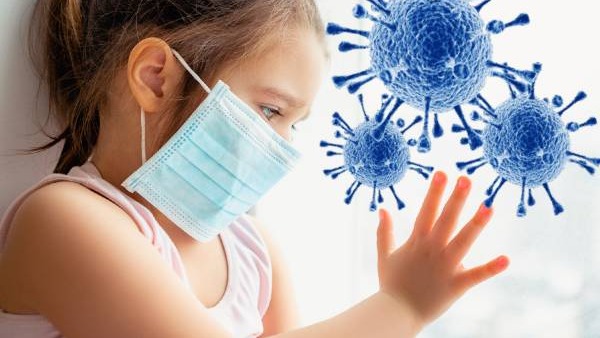Just In
- 4 hrs ago

- 4 hrs ago

- 8 hrs ago

- 15 hrs ago

Don't Miss
- Sports
 Manchester City vs Chelsea LIVE Streaming: Where to Watch FA Cup Semi-Final in India, UK, USA and Other Countries
Manchester City vs Chelsea LIVE Streaming: Where to Watch FA Cup Semi-Final in India, UK, USA and Other Countries - Finance
 1:10 Stock Split: Below Rs 10, Fertilizer Sector Turned Ex-Split; 8,282% Returns In 5 Years
1:10 Stock Split: Below Rs 10, Fertilizer Sector Turned Ex-Split; 8,282% Returns In 5 Years - Movies
 Pukaar Dil Se Dil Tak Promo: Sayli Salunkhe Impresses In First Video Of Sony TV Show, Details About Her Role
Pukaar Dil Se Dil Tak Promo: Sayli Salunkhe Impresses In First Video Of Sony TV Show, Details About Her Role - News
 Chinese President Xi Jinping Orders Biggest Military Reorganisation Since 2015
Chinese President Xi Jinping Orders Biggest Military Reorganisation Since 2015 - Education
 Exam Pressure Does Not Exist; Studying Punctually is Crucial; Says Aditi, the PSEB 2024 Topper
Exam Pressure Does Not Exist; Studying Punctually is Crucial; Says Aditi, the PSEB 2024 Topper - Automobiles
 Suzuki Swift Hatchback Scores 4 Star Safety Rating At JNCAP – ADAS, New Engine & More
Suzuki Swift Hatchback Scores 4 Star Safety Rating At JNCAP – ADAS, New Engine & More - Technology
 Dell Introduces AI-Powered Laptops and Mobile Workstations for Enterprises in India
Dell Introduces AI-Powered Laptops and Mobile Workstations for Enterprises in India - Travel
 Journey From Delhi To Ooty: Top Transport Options And Attractions
Journey From Delhi To Ooty: Top Transport Options And Attractions
Pathways To Severe Coronavirus In Children Discovered By Scientists
Researchers have discovered the pathways that are activated in severe cases of COVID-19 in children, an advance that can lead to earlier diagnosis and more targeted treatments for the disease.

Image Illustration By Pixabay
The study, published in the journal Nature Communications, identified disease mechanisms in children with COVID-19 who present with a multisystem inflammatory syndrome, where different body parts can become inflamed including the heart, lungs, and brain and acute respiratory distress syndrome, a type of lung disease.
The main triggers for severe COVID-19 in children were blood clotting and how proteins in the immune system reacted to the virus, the researchers said.
"Children are in general less susceptible to COVID-19 and present with milder symptoms, but it remained unclear what caused some to develop very severe disease," said Conor McCafferty, PhD student at the University of Melbourne in Australia.
"Our research was the first to uncover the specific blood clotting and immune protein pathways impacted in children with COVID-19 who developed serious symptoms," McCafferty said in a statement.
For the study, blood samples from 20 healthy children were collected and samples from 33 SARS-CoV-2 infected children with multisystem inflammatory syndrome or acute respiratory distress syndrome were collected.
Professor Damien Bonnet, from the Greater Paris University Hospitals, France, said collecting samples to further describe the mechanisms of these syndromes and establishing worldwide collaborations were considered key issues to improve treatment and outcomes.
The research found that 85 and 52 proteins were specific to multisystem inflammatory syndrome and acute respiratory distress syndrome, respectively. Both syndromes are major potential outcomes of severe COVID-19.

Data shows 1.7 per cent of reported paediatric hospitalised cases of COVID-19 included admission to the Intensive Care Unit, according to the researchers.
Children with COVID-19 who present with the multisystem inflammatory syndrome also show similar clinical features to Kawasaki disease and toxic shock syndrome such as fever, abdominal pain, vomiting, skin rash and conjunctivitis, making it difficult to quickly diagnose patients, they said.
"The results provided an understanding of the processes that underly severe COVID-19 in children, which would help in the development of diagnostic tests for early identification of children at risk, as well as therapeutic targets to improve the outcomes for those with severe cases," said Professor Vera Ignjatovic from Murdoch Children's Research Institute (MCRI) in Australia.
"Knowing the mechanisms associated with severe COVID-19 in children and how the blood clotting and immune systems in children react to the virus will help diagnose and detect acute COVID-19 cases and allow us to develop targeted treatment," Ignjatovic added.
-
 disorders cureIndia May See A Covid Surge In January, Next 40 Days Crucial; Here Is How To Protect Yourself From COVID-19
disorders cureIndia May See A Covid Surge In January, Next 40 Days Crucial; Here Is How To Protect Yourself From COVID-19 -
 disorders cureCOVID Can Trigger Parkinson's Disease: Study
disorders cureCOVID Can Trigger Parkinson's Disease: Study -
 disorders cureCommon COVID Symptoms In Fully Vaccinated Individuals: What You Should Know
disorders cureCommon COVID Symptoms In Fully Vaccinated Individuals: What You Should Know -
 wellnessMild COVID Linked To Life-Threatening Blood Clots, Increased Risk Of Cardiovascular Disease; Study
wellnessMild COVID Linked To Life-Threatening Blood Clots, Increased Risk Of Cardiovascular Disease; Study -
 wellnessCOVID-19 Variants In India: New COVID Variant May Pose Threat To Elderly People
wellnessCOVID-19 Variants In India: New COVID Variant May Pose Threat To Elderly People -
 basicsCovid-19 Linked To Early Onset Of Periods: What You Need To Know
basicsCovid-19 Linked To Early Onset Of Periods: What You Need To Know -
 wellnessCOVID XBB Variants Of Omicron In India: What You Should Know
wellnessCOVID XBB Variants Of Omicron In India: What You Should Know -
 disorders cureNew Omicron Subvariant BQ.1 Detected In Maharashtra: What You Should Know
disorders cureNew Omicron Subvariant BQ.1 Detected In Maharashtra: What You Should Know -
 disorders cureOmicron BF.7 In India, Risk Of Fresh Wave During Diwali: What You Should Know
disorders cureOmicron BF.7 In India, Risk Of Fresh Wave During Diwali: What You Should Know -
 womenPriyanka Chopra Speaks On Climate Change, COVID, Poverty At The UN Sustainable Development Goals 2022 Moment
womenPriyanka Chopra Speaks On Climate Change, COVID, Poverty At The UN Sustainable Development Goals 2022 Moment -
 wellnessCoronavirus Residues Might Be Causing Long COVID: New Study
wellnessCoronavirus Residues Might Be Causing Long COVID: New Study -
 art cultureRenowned Spanish Author Javier Marias Passes Away Due To Lung Infection Post COVID-19
art cultureRenowned Spanish Author Javier Marias Passes Away Due To Lung Infection Post COVID-19


 Click it and Unblock the Notifications
Click it and Unblock the Notifications



